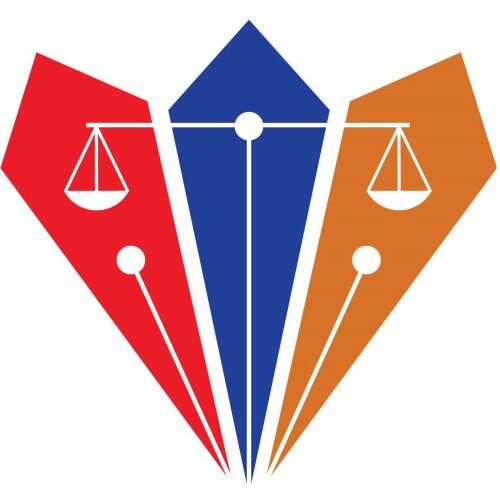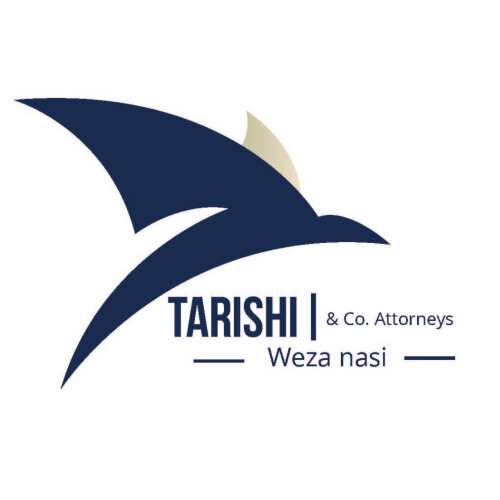Best Water Law Lawyers in Dar es Salaam
Share your needs with us, get contacted by law firms.
Free. Takes 2 min.
List of the best lawyers in Dar es Salaam, Tanzania
About Water Law in Dar es Salaam, Tanzania
Water Law in Dar es Salaam, Tanzania, governs the rights, usage, management, and protection of water resources within the city and the wider region. As Dar es Salaam experiences rapid urbanization and population growth, the demand for clean and accessible water is rising. Water Law, which is shaped by both national legislation and local by-laws, sets the framework for how individuals, companies, and government bodies can use water, resolve disputes, address pollution, and secure water rights. The law is crucial in balancing the needs of domestic, agricultural, industrial, and environmental water users.
Why You May Need a Lawyer
People in Dar es Salaam may need a Water Law lawyer for several reasons. Common situations include:
- Disputes over water access or allocation with neighbors, communities, or local authorities.
- Legal issues related to the construction and regulation of boreholes, wells, or water extraction systems.
- Allegations of water pollution, illegal discharge, or violations of sanitation standards.
- Negotiating water supply contracts or agreements for residential, agricultural, or commercial use.
- Enforcement or defense in cases involving compliance with the Water Resources Management Act or other regulations.
- Challenges regarding water utility connections, billing disputes, or service interruptions from providers like DAWASA or DAWASCO.
- Protection of community rights or advocacy in cases where large projects may impact access to water.
Local Laws Overview
The main legal instruments governing Water Law in Dar es Salaam are the Water Resources Management Act, the Water Supply and Sanitation Act, and various local government bylaws. These laws regulate how water resources are used, conserved, and protected. Some key aspects include:
- Licensing and permits for water extraction or use, especially for commercial or large-scale purposes.
- Rules regarding pollution control, effluent discharge, and environmental protection of water bodies.
- Obligations of water supply and sanitation authorities to provide safe and adequate water to residents.
- Mechanisms for dispute resolution, such as Water User Associations and the Water Tribunal.
- Regulations about drilling wells, constructing dams, or altering natural water courses.
- Enforcement powers of regulatory agencies like the Ministry of Water and DAWASA.
Compliance with these laws is critical to avoid penalties, service interruptions, or environmental harm. Local ordinances in Dar es Salaam may provide further detail, especially for urban water management and sanitation.
Frequently Asked Questions
What is the main law regulating water resources in Tanzania?
The Water Resources Management Act is the primary law that governs water resources in Tanzania, including Dar es Salaam. It covers water permits, protection of water sources, and conflict resolution.
Who supplies water in Dar es Salaam?
Dar es Salaam Water and Sewerage Authority (DAWASA) owns the water infrastructure, while Dar es Salaam Water and Sewerage Corporation (DAWASCO) operates it, providing water to urban residents and businesses.
How do I obtain a permit to drill a borehole or well?
You must apply for a permit from the relevant authorities, usually through DAWASA or the Ministry of Water. The process includes environmental assessments and compliance with local regulations.
Can I be fined for illegal water connections?
Yes. Unauthorized water connections or tapping into public water supplies are offenses under Tanzanian law and can attract fines or criminal penalties.
What are my rights if my water supply is interrupted or of poor quality?
You have the right to complain to the service provider, and if not resolved, escalate to the Energy and Water Utilities Regulatory Authority (EWURA) or seek legal assistance.
Am I required to treat wastewater before discharge?
Yes. Businesses, industries, and even some households must treat wastewater to meet environmental standards before discharging it into water bodies, as per Tanzanian law.
What should I do if I suspect water pollution near my home?
Report immediately to local authorities, such as the municipal council, Environmental Management Office, or DAWASA. You can also seek legal advice if the issue persists.
Can I use water from a river or stream for irrigation?
You generally need a water use permit, especially for commercial or large-scale irrigation. Unauthorized usage can result in penalties.
How are water disputes resolved in Dar es Salaam?
Disputes are often handled by Water User Associations, local government authorities, or can be escalated to the Water Tribunal, a specialized body for water-related cases.
Do community groups have any protections under Water Law?
Yes. Communities have recognized rights to participate in water management, and the law provides for collective rights and obligations, especially concerning local water sources.
Additional Resources
For further help, consider reaching out to the following:
- Ministry of Water: The primary government body for policy and regulation of water resources.
- Dar es Salaam Water and Sewerage Authority (DAWASA): For permits, complaints, and infrastructure queries.
- Dar es Salaam Water and Sewerage Corporation (DAWASCO): For water supply and service issues.
- Energy and Water Utilities Regulatory Authority (EWURA): For regulatory matters, consumer complaints, and enforcement.
- PRACTICAL ACTION and other NGOs: For advocacy, education, and technical guidance on sustainable water use.
- Local courts and the Water Tribunal: For dispute resolution and legal proceedings.
Next Steps
If you need legal help in Water Law in Dar es Salaam, begin by gathering all relevant documents such as permits, correspondence, and evidence of water-related issues. Contact a reputable law firm or legal practitioner who specializes in Water Law. Consider making an initial inquiry with regulatory agencies to understand your rights and obligations. For complex disputes or if facing enforcement action, engaging a qualified Water Law lawyer will help you navigate the legal process, negotiate settlements, or represent you before authorities or the Water Tribunal. Acting early can help protect your rights, avoid penalties, and ensure fair access to water resources.
Lawzana helps you find the best lawyers and law firms in Dar es Salaam through a curated and pre-screened list of qualified legal professionals. Our platform offers rankings and detailed profiles of attorneys and law firms, allowing you to compare based on practice areas, including Water Law, experience, and client feedback.
Each profile includes a description of the firm's areas of practice, client reviews, team members and partners, year of establishment, spoken languages, office locations, contact information, social media presence, and any published articles or resources. Most firms on our platform speak English and are experienced in both local and international legal matters.
Get a quote from top-rated law firms in Dar es Salaam, Tanzania — quickly, securely, and without unnecessary hassle.
Disclaimer:
The information provided on this page is for general informational purposes only and does not constitute legal advice. While we strive to ensure the accuracy and relevance of the content, legal information may change over time, and interpretations of the law can vary. You should always consult with a qualified legal professional for advice specific to your situation.
We disclaim all liability for actions taken or not taken based on the content of this page. If you believe any information is incorrect or outdated, please contact us, and we will review and update it where appropriate.













